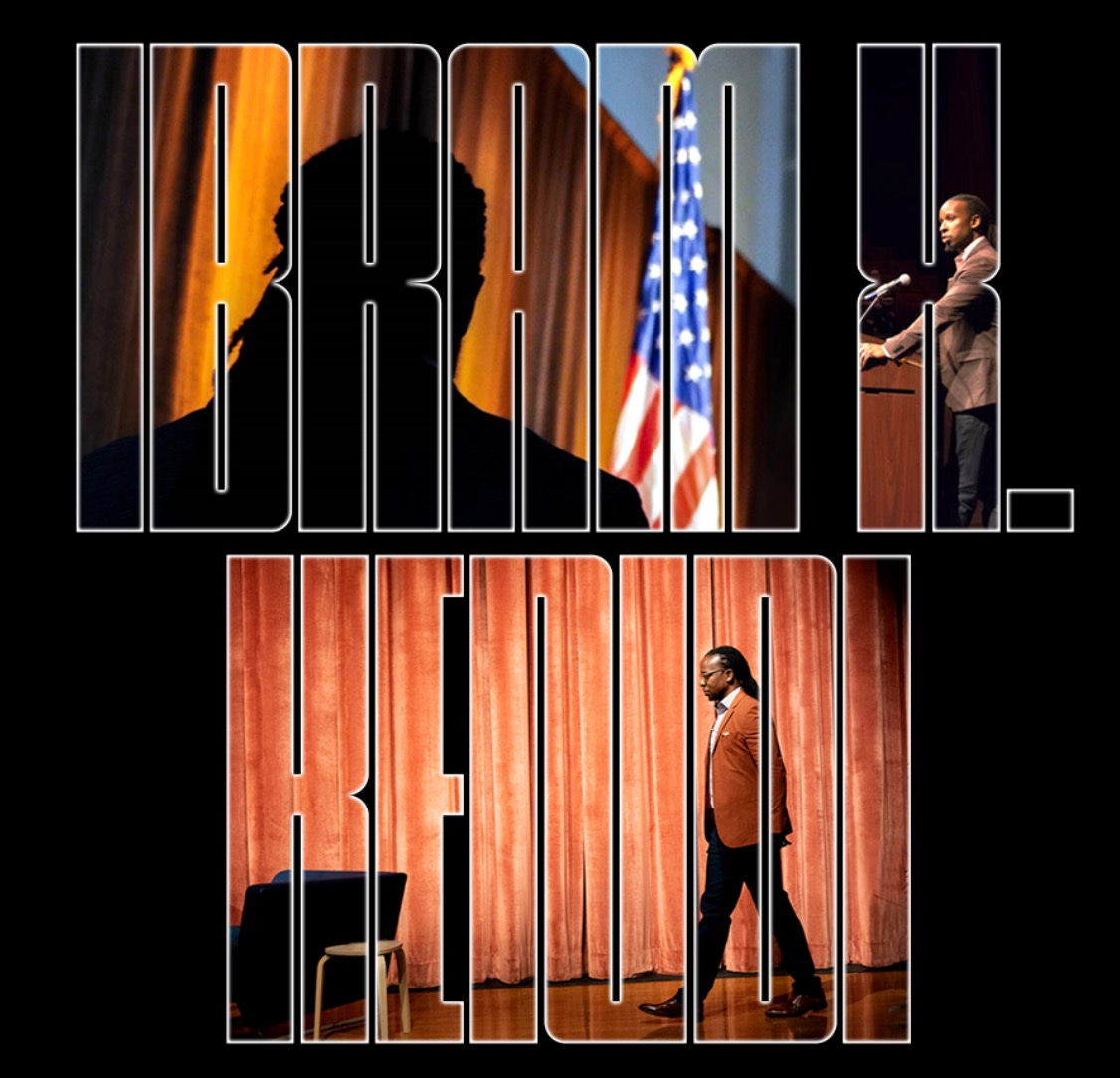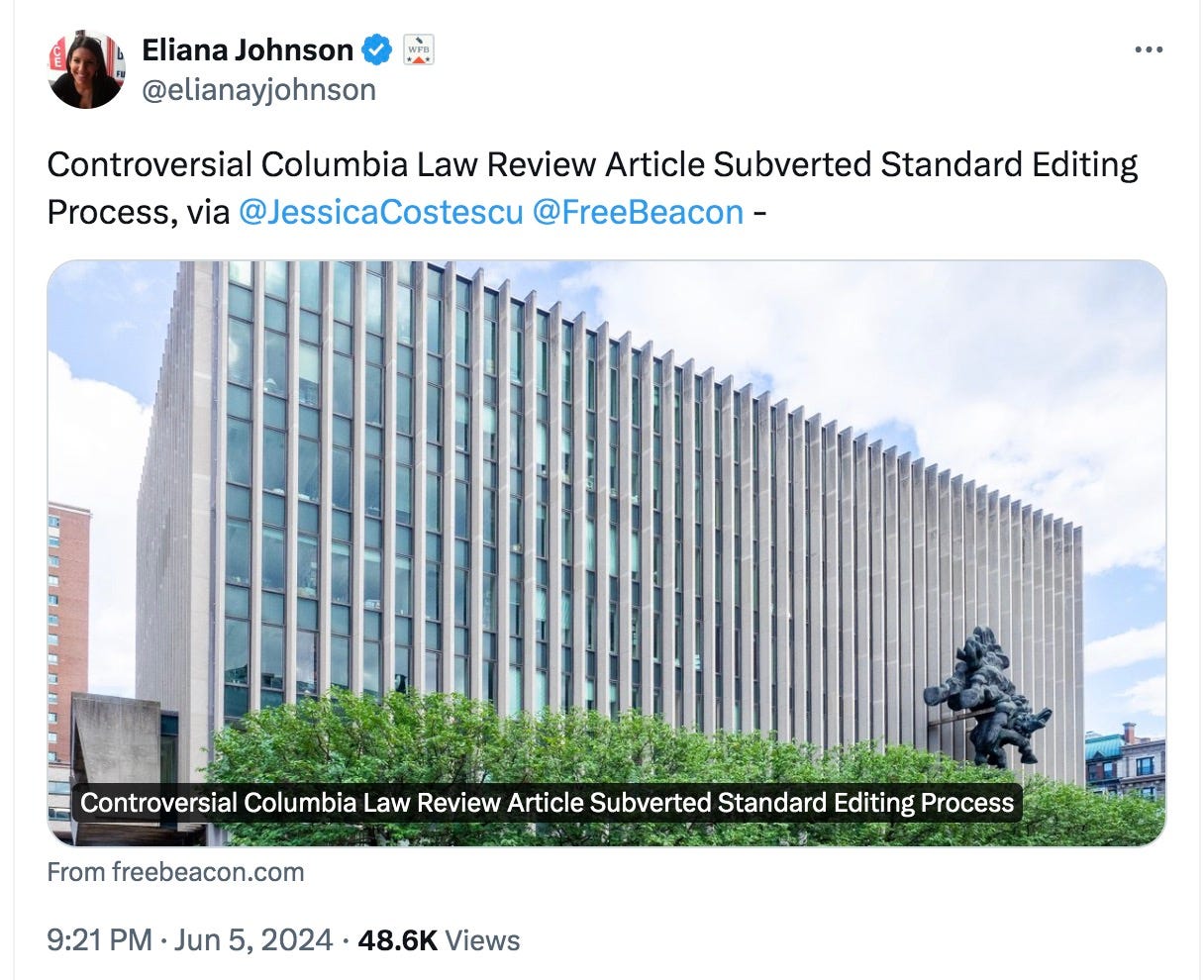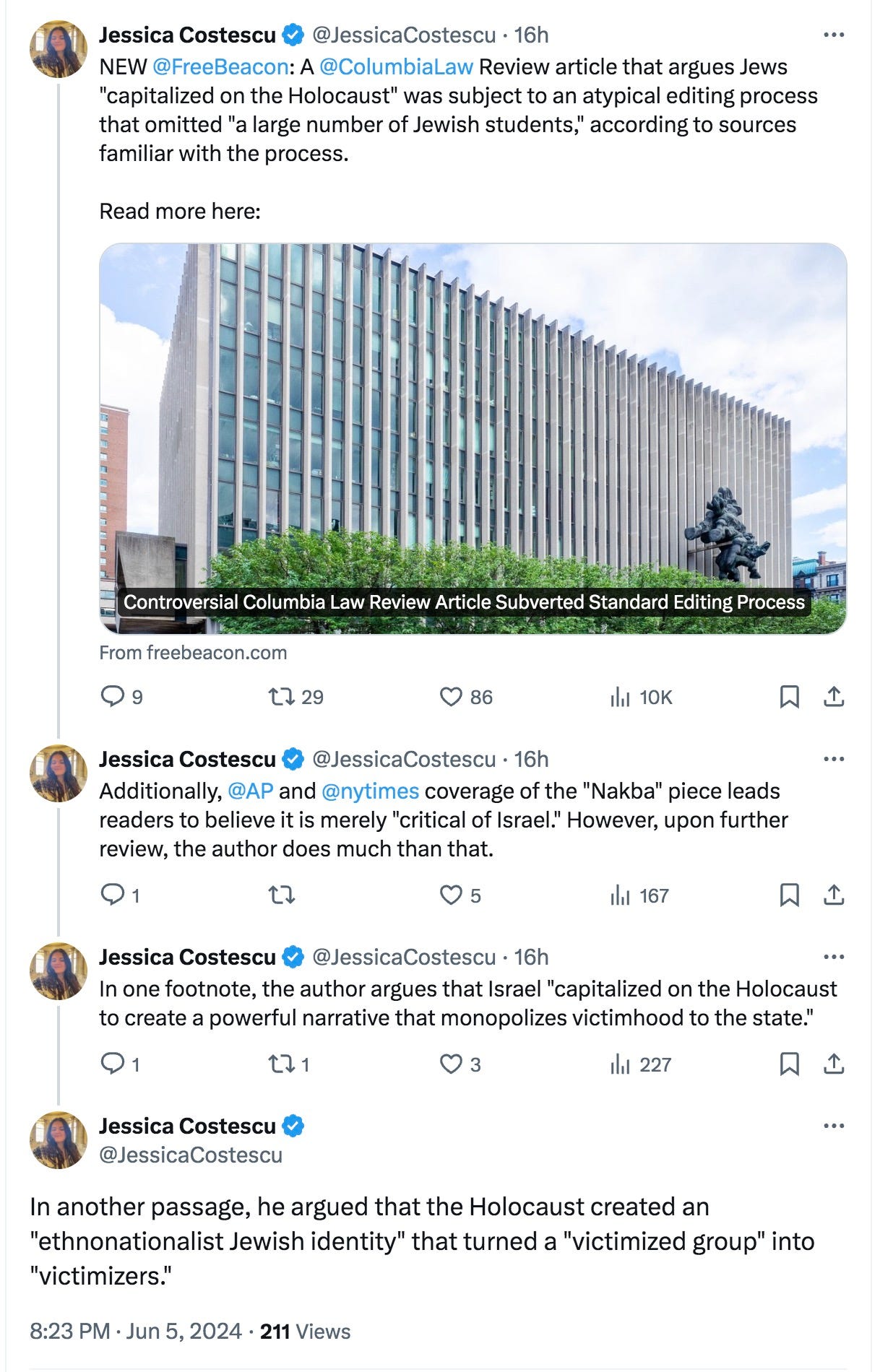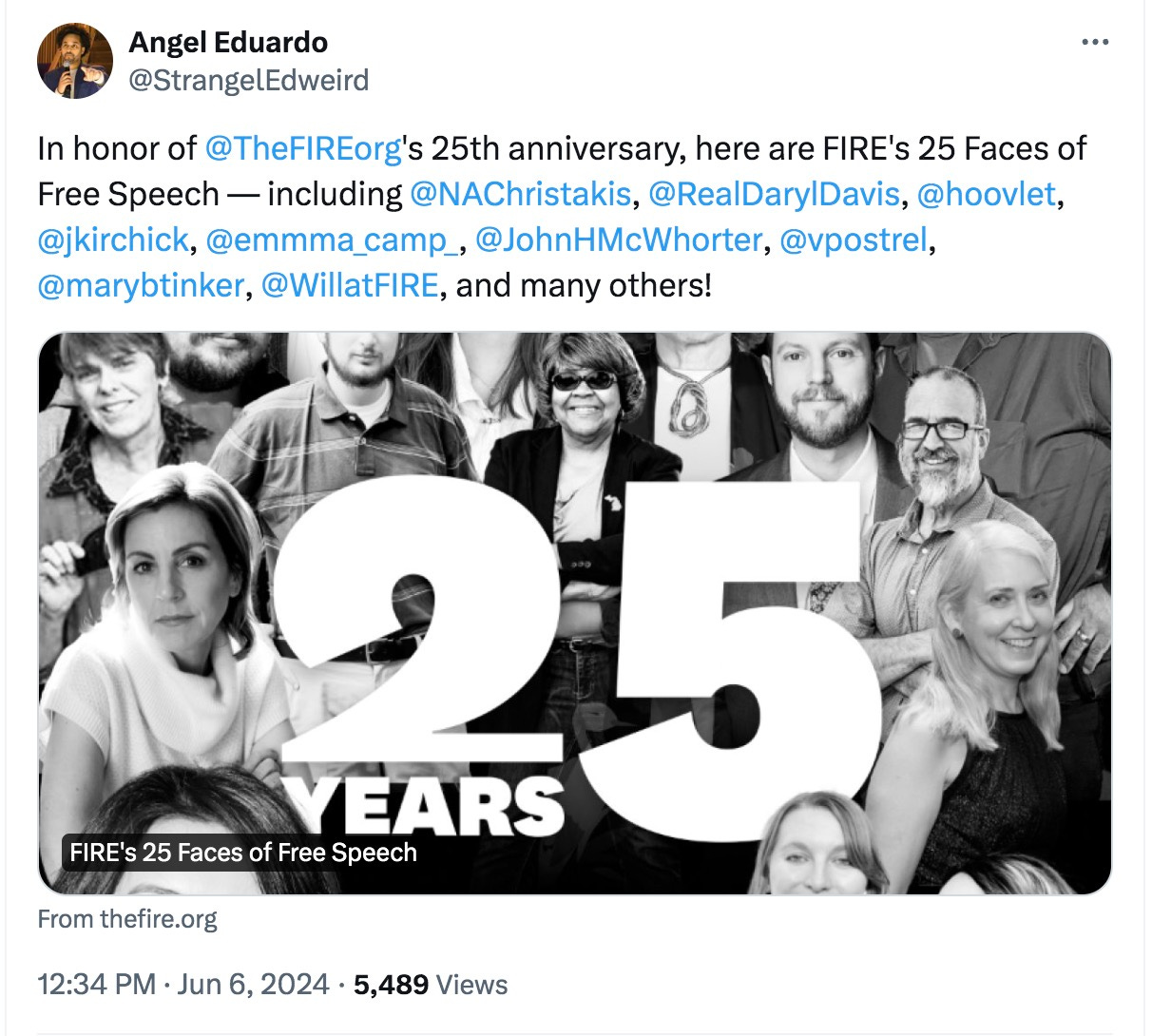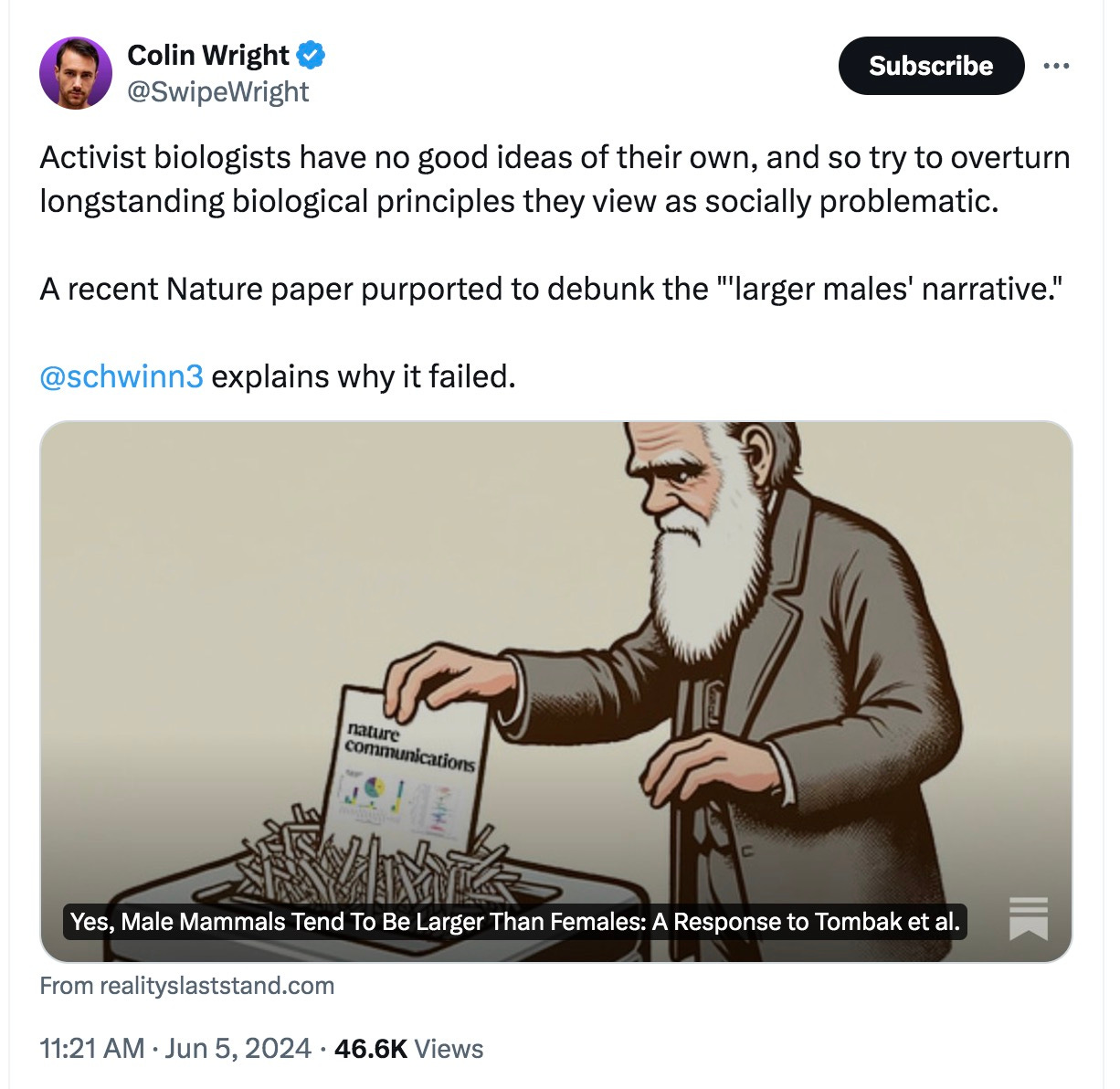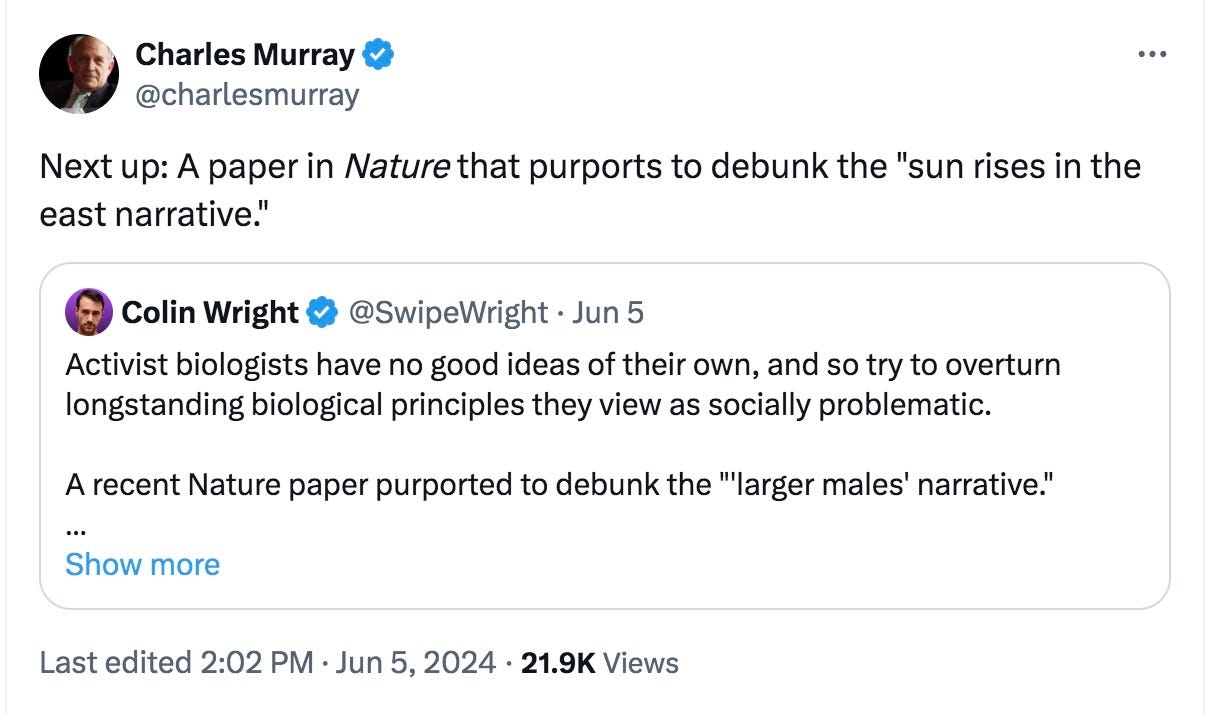E-Pluribus | June 6, 2024
More information hasn't made us more informed; let's hear it for the elites!(?!); and Ibram X. Kendi under the microscope.
A round-up of the latest and best musings on the rise of illiberalism in the public discourse:
Robert Tracinski: The Collapse of Media Leaves Us Flying Blind
Dying of thirst when lost at sea has always seemed a cruel paradox - “Water, water, everywhere, Nor any drop to drink,” as the Rime of the Ancient Mariner put it. The ubiquity of news and information in our present society has a similar feel with many studies and surveys reporting a growing ignorance in the general public. At Discourse Magazine, Robert Tracinski ponders the problem and considers some possible solutions.
Those of us who report the news or write our opinions would like to think that people used to buy newspapers to get access to our trenchant observations and deathless prose. Alas, this was never quite true. Information and ideas about politics might be of crucial importance to the republic, but their economic value in the marketplace has always been relatively small.
[. . .]
The problem is that information needs to get paid. The people who provide information need to be able to make a living at it—and that’s not happening. A 2023 report from Northwestern University’s Medill School of Journalism found that journalism is dying at an accelerating rate.
[. . .]
Having lost the habit of paying for the news, people have also lost the habit of reading the news. A Pew study shows that the problem with the media industry is not just declining ad revenue; it’s declining readership.
[. . .]
The partial exception is that a few big names like The New York Times have managed to grow by selling online subscriptions. You can see, though, how this is being done at the expense of other news outlets. It is nice for readers across the heartland that we no longer have to get our news through a mediocre local paper but can get it from the Times, packaged along with our favorite word games. But this means that the media is consolidating into a few big brands.
One of the consequences is a widening gap between informed readers and uninformed non-readers. A small portion of us are voracious readers who take in a lot of information. But most people only casually take in information about politics while scanning to see about that sale at Fleet Farm. They are now even less likely to read anything at all about what is going on in the world or their communities. And when they do encounter information, it is often from less reputable and far less reliable sources than formerly.
[. . .]
[I]nstead of news presented in a balanced way to a wide audience, social media feeds us whatever entrenches and exaggerates our existing loyalties. Far-out radicals who might have previously recognized that they are small minorities now live in such a reverberating echo chamber that they think they represent a populist groundswell and ought to dominate one of the major political parties.
It’s no wonder we recently had our first “extremely online” president, who rallied his base with talking points from cable news and memes and conspiracy theories passed around on Facebook and Twitter.
[. . .]
The promise of the internet is that it was supposed to unleash an army of “citizen journalists.” But that has come to mean unleashing an army of poorly informed people shouting about topics they don’t really know anything about. So perhaps that is the one useful suggestion I can offer. If we’re going to have citizen journalism, let’s have citizen journalism. There are some efforts to support local news by hiring kids out of journalism school, putting them on a stipend and sending them out across the heartland. Perhaps the better solution would be to send a few seasoned journalists out across the country to offer training, advice and mentorship to people who already live in these communities and want to inform and engage their neighbors.
Read the whole thing.
Michael J. Ard: Requiem for the ‘Power Elite?’
While “elite” is often considered pejorative, Michael J. Ard (also at Discourse Magazine) writes that not everything those at the top do with their power is bad. With most people turning their attention towards their daily workaday lives, there’s at least something to be said for those who focus on the big picture.
Pointing out that a small group of elites runs America is no conspiracy theory; it’s a fact. According to political scientist Thomas Dye, power elite theory rests on the simple premise that, in any society, a small minority of people controls all the power, and a large majority does not. Made up of just a few thousand individuals, these power elites lead America’s most important institutions and make the key decisions on war and peace, taxes and spending, crime and punishment, arts and entertainment, etc.
Our power elites compete hard over policy issues but maintain a distinct and underlying worldview. Dye identifies this long-running “liberal establishment” as characterized by toleration and public-mindedness. Part of that toleration includes open-mindedness on who may join the power elites, which gives them some connection to the rest of the American public. While our top elites often come from great privilege, a large percentage have middle-class origins, especially those who graduate from the most prestigious liberal universities. As President Joe Biden supposedly once said, in America “a river of power … flows through the Ivy League.”
Power elite theory competes with pluralist theory for explaining how American democracy actually operates. Analysts like Dye admit that evidence for a power elite’s oligarchic dominance of American politics is inconclusive—mostly because the pluralist arguments are also persuasive. Yet for many on both the left and the right, this power elite theory explains why democratic “majority rule” often fails at making important changes.
[. . .]
America’s power elite may be tough to love, but it deserves some respect on many big things, especially in preserving a successful democratic and inclusive political formula and permitting a healthy circulation of elites, especially in the post-World War II years.
Despite the criticism of Mills and his disciples, the liberal order constructed by the post-war power elite has enabled American citizens to enjoy a high level of civilization and avoid destructive war with our Cold War enemies. Americans boast one of the highest standards of living in the world—exceeding Western Europe. Even poor Americans have more purchasing power than the average citizens in most European countries, according to the Foundation for Economic Education. Nearly 92% of American households own a car. More than half of the U.S. population has completed post-secondary education.
In recent decades, the power elite has become increasingly open to women and minorities occupying important positions of power. Of course, the process of getting to this point has been gradual and far from perfect, but it indeed happened. In fact, some members of today’s power elite argue vociferously for greater presence of these historically disenfranchised groups among their own ranks—for more women in the boardroom, for instance. This “circulation of elites” has ensured the power elite’s vitality and connection to the people.
Nevertheless, the power elite marginalizes both far-right and far-left extremism, despite their intermittent appeal among the common folk. For example, in “Who Rules America?” sociologist G. William Domhoff notes the refusal of key business groups like the Business Roundtable—power elite central—to endorse Trump’s 2020 election fraud claims. Other elites have strongly rejected the pro-Palestinian campus protests.
Certainly, our leaders have failed the country on several occasions, such as the Vietnam War, the Iraq invasion of 2003 and the 2008 financial crisis. In those cases, we recovered sufficiently to avoid a regime-threatening crisis. Still, these blunders have come at some cost. Our most prestigious national institutions, nearly across the board, have suffered diminishing public confidence for years, according to a long-running Gallup poll.
It is unclear what can turn around this lack of confidence. Mosca believed that “the virtues of a good state contain the seeds of its own destruction.” The liberal political formula that sustained the country for so long is showing signs of wear and incoherence. Liberalism, which Burnham many years ago called “that strange mélange of sentimental confusion,” has only gotten stranger and more confused. As we look into the future, can the power elite see us through the challenges that may undercut regime legitimacy? The dark clouds gathering on the horizon are hard to ignore.
Read it all here.
Rachel Poser: Ibram X. Kendi Faces a Reckoning of His Own
The New York Times’s Rachel Poser has written a rather lengthy profile of famous (or infamous) anti-racist Ibram X. Kendi. Poser writes that while Kendi is down from the heights he reached a few years ago, he’s not out. But missteps and a growing backlash to Kendi’s style of approaching race relations has his words and actions under greater scrutiny than when he first came to prominence.
Four years have gone by since George Floyd was murdered on the pavement near Cup Foods in Minneapolis, sparking the racial “reckoning” that made Kendi a household name. Many people, Kendi among them, believe that reckoning is long over. State legislatures have pushed through harsh antiprotest measures. Conservative-led campaigns against teaching Black history and against diversity, equity and inclusion programs are underway. Last June, the Supreme Court struck down affirmative action in college admissions. And Donald Trump is once again the Republican nominee for president, promising to root out “the radical-left thugs that live like vermin within the confines of our country.”
Kendi has become a prime target of this backlash. Books of his have been banned from schools in some districts, and his name is a kind of profanity among conservatives who believe racism is mostly a problem of the past. Though legions of readers continue to celebrate Kendi as a courageous and groundbreaking thinker, for many others he has become a symbol of everything that’s wrong in racial discourse today. Even many allies in the fight for racial justice dismiss his brand of antiracism as unworkable, wrongheaded or counterproductive. “The vast majority of my critics,” Kendi told me last year, “either haven’t read my work or willfully misrepresent it.”
Criticism of Kendi only grew in September, when he made the “painful decision” to lay off more than half the staff of the research center he runs at Boston University. The Center for Antiracist Research, which Kendi founded during the 2020 protests to tackle “seemingly intractable problems of racial inequity and injustice,” raised an enormous sum of $55 million, and the news of its downsizing led to a storm of questions. False rumors began circulating that Kendi had stolen funds, and the university announced it would investigate after former employees accused him of mismanagement and secrecy.
The controversy quickly ballooned into a national news story, fueled in large part by right-wing media, which was all too happy to speculate about “missing funds” and condemn Kendi — and the broader racial-justice movement — as a fraud. On Fox News, the conservative activist Christopher Rufo told the host John Roberts that the center’s “failure” was “poetic justice.” “This is a symbol of where we have come since 2020 and why that movement is really floundering today,” he said. In early October, a podcast affiliated with the Manhattan Institute, the conservative think tank where Rufo works, jubilantly released an episode titled “The End of Ibram X. Kendi?”
[. . .]
To Kendi, attacks from those who claim to be allies, like attacks from political enemies, are to be expected. In his books, Kendi argues that history is not an arc bending toward justice but a war of “dueling” forces — racist and antiracist — that each escalate their response when the other advances. In the years since 2020, he believes, the country has entered a predictable period of retrenchment, when the force of racism is ascendant and the racial progress of the last several decades is under threat. To defend antiracism, to defend himself, he would simply have to fight harder.
[. . .]
In a memo to The Times, Kendi disputed many of the staff’s recollections of his leadership. “This is not me, and anyone close to me, who has worked with me for a long time, knows that I’m open to constructive criticism as a writer and a thinker and a leader,” he wrote. Many progressive advocacy groups, Kendi pointed out, have been torn apart by internal clashes in recent years, conflicts that he said were driven by employees who “care more about performing their radicalism” than working to “improve the lives of everyday people.” “Former employees constantly deauthorized me as the director of the center — not because they were against hierarchy — but to assume authority for themselves,” he wrote.
[. . .]
Though some staff members told me they appreciated Kendi — “My life forever, forever changed because I worked for someone who pushed me to envision what’s possible,” one said — many others had become darkly cynical about him. The most vocal among them was Grundy, who took to Twitter calling Kendi a “grifter” and fueling the rumor that he might have stolen funds. Redwood tried to have empathy. She imagined what it must be like to be constantly attacked — to have your intelligence insulted, your motives questioned. “I wonder if some of the secrecy and paranoid behavior came about as a result of that,” she told me. “I have no idea, and I had to just eventually stop trying to figure it out and just move on, because I couldn’t understand how the person I met when he was at American, when I sat down with him for lunch, the person who appeared to be so humble, so committed — and I still think he is committed — could be the person that I worked for. It is not something that I have ever been able to understand.”
Several people stressed to me that Kendi’s weaknesses as a leader were not as important as the larger forces that surrounded his leadership — the opportunism of white-led institutions, the boom and bust of trend-chasing nonprofit funding, the commodification of Black thought and activism. I asked Boston University to comment on a complaint I heard from the staff, that its administration had failed to provide adequate oversight. “Boston University provided significant financial and administrative support to Dr. Kendi and the center. Dr. Kendi did not always accept the support,” a spokesperson wrote. “In hindsight, and with the fuller knowledge of the organizational problems that arose, the university should have done more to insist on additional oversight.”
Read it all.
Around Twitter (X)
Yesterday’s Around Twitter (X) included a tweet from Alex Morey regarding “Columbia Law Review’s Board of Directors… taking their entire website offline in a dispute with the Review’s editors.” Jessica Costescu at the Washington Free Beacon (via Free Beacon editor Eliana Johnson) has more on the incident:
Via Angel Eduardo, here’s the Foundation for Individual Rights & Expression’s 25 Faces of Free Speech, in celebration of the organization’s Silver Anniversary. Click to see who made the cut.
And finally, after Colin Wright posts about a silly Nature article, Charles Murray has a guess at what might be coming next:






